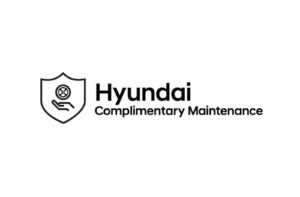The original equipment manufacturer (OEM) franchised workshop (FWS) channel accounted for nearly a quarter of global PCMO demand in 2020 and is projected to grow at a faster pace than the overall PCMO market. Asia-Pacific leads in volume, while Europe leads in channel market share. The growth in the OEM FWS channel compared to others―such as the independent workshop (IWS) and local garage channel―is due to greater investment by OEMs and their dealers in retaining customers for after–sales service, as well as changing consumer preferences.
This is being driven by declining new vehicle sales profits, as vehicle pricing has become more transparent with detailed pricing available online and increased competition between dealerships. This has hurt dealership profitability, and dealers, as their OEMs, are looking to develop and grow the after-sales service side of their business. There are several ways this is being done: through advertising campaigns, loyalty programs, complimentary maintenance, investments in phone apps, and even ventures into the quick lube/fast fit channel, among others.
To be more specific, Ford has been investing in advertising campaigns marketing “The Works” package, which is a complete maintenance and inspection offer at pricing competitive to local IWS chains.

Ford has also launched its FordPass Rewards program, which was designed in cooperation with companies well–versed in customer loyalty, such as Marriott and JetBlue. As another example, Hyundai has launched its own complimentary maintenance program, which offers new vehicle owners three years or 36,000 miles of free maintenance.

Volvo perfectly timed its Volvo Valet application and service, which launched just prior to the COVID-19 pandemic and has helped provide customers with pick-up and drop-off service from its dealership network and has helped maintain dealership traffic throughout the shutdown.

Some OEMs have also begun tentatively venturing into the quick–lube and fast-fit chain, as many North American OEMs now have dedicated quick lubes either attached to their dealership or standing alone. Asian OEMs have also followed suit with their own fast-fit chains to help expand their network and reach customers.
On another note, consumer preferences in developed regions have been shifting back toward the OEM FWS channel, as seen first in Europe but also in North America. As vehicles become much more technologically advanced, with drivetrains designed to reduce emissions and provide optimal fuel economy, trained OEM technicians, with their computer diagnostics, become the primary choice for service and maintenance. This is also being aided by OEMs with proprietary features, which make DIY and IWS service and maintenance more challenging, as only the OEM has access to some of these tools.
COVID-19, however, did cause a significant PCMO demand decline in the OEM FWS channel due to the global shutdown. The pandemic also created a shift in this service channel. Consumers are looking for contact-free service and sales and are increasingly using phone apps and online service scheduling tools. For instance, dealerships are offering pick-up and drop-off services.
Kline’s second edition of the Franchised Workshop Channel in the Consumer Automotive Segment, a study on the trends and drivers of PCMO in the OEM FWS channel, offers a more detailed look, by country, into the drivers and trends in the OEM FWS channel. In this report, we investigate some of the effects of the global shutdown on the FWS channel and its projected growth post–pandemic.

